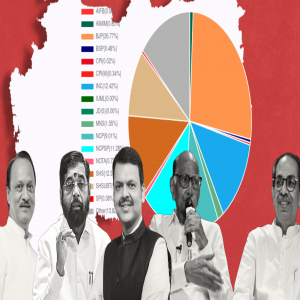
 Fr. Gaurav Nair
Fr. Gaurav Nair
In the intricate dance of democratic representation, recent state elections have revealed a performance so meticulously orchestrated that the line between the electoral process and political theatre has become disturbingly blurred.
What masquerades as democratic choice increasingly resembles a carefully curated narrative, where institutional neutrality has become a quaint historical concept. The ruling party's electoral strategy transcends traditional campaigning, transforming into a complex algorithm of social engineering, cultural messaging, and strategic welfare distribution.
The systematic deconstruction of opposition is not an accident but a calculated design. Once considered formidable political entities, regional parties now appear like fragile constructs easily dismantled by sophisticated political machinery. The erosion of political diversity is happening not through dramatic confrontations, but through subtle institutional pressures, financial investigations, and strategic alliances that gradually neutralise potential challenges.
Given these excuses, the opposition parties should have wised up and got their act together against this systematic targeting. Even after losing Haryana, the only extant party that can make a dent has failed to deliver. The BJP's aggressive tactics on the frontlines have not helped this situation.
Welfare schemes have metamorphosed from social support mechanisms to sophisticated electoral instruments. Politicians have discovered that targeted financial promises can be more potent than ideological debates. The electorate, facing economic uncertainties, becomes susceptible to immediate monetary relief, transforming complex political choices into transactional interactions.
The media's role has evolved from being a watchdog to becoming a carefully choreographed amplification system. News cycles are no longer about reporting reality but constructing narratives aligning with predetermined political objectives.
Hindutva political strategists now view communities not as living, breathing social entities but as numerical blocks to be strategically mobilised or fragmented. The nuanced understanding of social identity gives way to reductive political calculus.
Institutional neutrality—once considered sacred—now appears like a memory from long ago. Constitutional bodies designed as checks and balances have gradually transformed into entities that seem more interested in maintaining their master's happiness than upholding principles.
The opposition is experiencing an existential crisis and struggling to articulate a coherent counter-narrative. Its fragmented approach, opportunistic alliances and reactive strategies starkly contrast with the ruling dispensation's meticulously planned political communication.
Cultural nationalism has emerged as a powerful electoral adhesive, transcending traditional political divisions. BJP-RSS have discovered a potent method of consolidating voter support by creating a collective identity narrative that supersedes local and regional distinctions.
The most profound transformation might be in how citizens perceive democratic participation. Voting no longer belongs to the domain of informed choices and the common good. The fall of the votes is determined by the weight of the revdis given. Only immediate benefits potentially outweigh long-term constitutional principles.
As the political landscape continues to reshape itself, one fundamental question remains: In this elaborate dance of democratic representation, who truly leads, and who merely follows the choreographed steps?